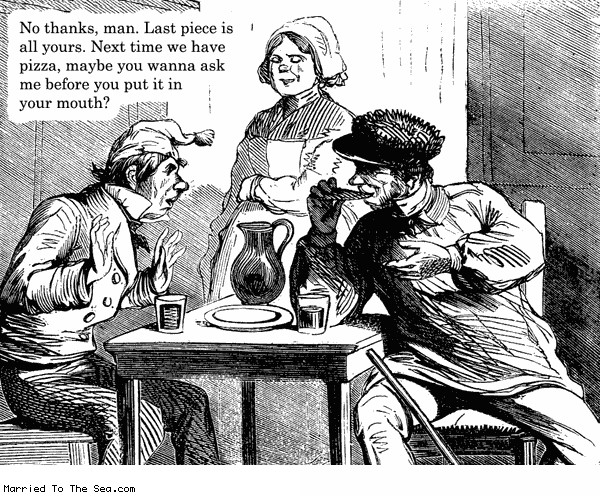"El ídish defiende su nombre" (se encontró en
www.elcastellano.org)
Por Jaime Marín*, publicado en IWO
La adopción del vocablo yidis como nombre de la lengua de los judíos asquenazíes en el Diccionario Panhispánico de Dudas (DPD), provoca el rechazo de sus hablantes, que reivindican su denominación histórica: ídish. La decisión, ahora en revisión, contradice el principio de que "la norma surge del uso comúnmente aceptado". Más allá del equívoco, tomándolo desde un ángulo positivo el tema destaca el papel del DPD como "laboratorio" o "banco de pruebas" para compatibilizar norma y uso del español.
...
El equívoco quizá derive de haberse decidido en un ámbito con nula presencia del ídish en su historia, como es España, donde hasta su expulsión, en 1492, los judíos hablaban judeoespañol o ladino.
Inicialmente, la RAE sostuvo que la terminación "sh" no responde a las normas fonológicas del castellano. Sin embargo, no había revelado similar prurito en casos como el náhuatl (lengua de la comunidad náhua de México) o el afrikáans (de la República Sudafricana), voces que ingresaron directamente al DRAE tal como las pronuncian sus hablantes.
El DPD define norma como "el conjunto de preferencias lingüísticas vigentes en una comunidad de hablantes, adoptadas por consenso implícito entre sus miembros y convertidas en modelos de buen uso. (…) La norma surge del uso comúnmente aceptado y se impone a él, no por decisión o capricho de ninguna autoridad lingüística, sino porque asegura la existencia de un código compartido que preserva la eficacia de la lengua como instrumento de comunicación". (Diccionario Panhispánico de Dudas, "Norma Académica", Ed. Santillana 2005, p. XIII-XV)....
(*) El periodista Jaime Marín es director de la revista Idiomas y Comunicación. En 2008 recibió un Diploma Honorífico de la Academia Argentina de Letras.
TRANSLATION (more or less):
"Yiddish Defends Its Name"
by Jaime Marín*, published in the
Institute for Jewish ResearchThe adoption of the term
yidis in the Pan-Hispanic Dictionary of Problematic Words (DPD) to describe the language of Ashkenazi Jews was roundly rejected by Yiddish speakers, who reclaim the historical term:
ídish. The decision, now under further review, contradicts the principle that "the standard follow the commonly accepted use." Despite this blunder, the renaming of the term emphasizes the role of the DPD as a "laboratory" or "testing ground" for bringing into harmony the uses and the rules of the Spanish language.
...
The confusion over the term perhaps derives from having been decided in an environment without any presence of yiddish in its history, as in Spain, where until their explusion in 1492, Jews there spoke judeo-Spanish or Ladino.
Initially, the Royal Spanish Academy [what the OED guys are in English, essentially] maintained that the ending "sh" doesn't reflect the phonological rules of Castillian [Spanish Spanish]. Nevertheless, a similar obsession with these rules had not been revealed in cases such as Nahuatl (one of the indigenous languages of Mexico) or Afrikaans (a language in South Africa), words which are admitted directly to the Royal Spanish Academy Dictionary [Castillian version of the OED] as they are pronounced by their native speakers.
The Pan-Hispanic Dictionary of Problematic Words defines a norm/standard as "the totality of current, valid linguistic preferences in a community of speakers, adopted by implicit consent of its members and converted into models of good use. ... The standard arises from the commonly accepted use and prevails in it, not by decision or caprice on the part of any linguistic authority, but because it assures the existence of a shared code that preserves the efficacy of the language as an instrument of communication" (from the DPD, "Academic Standards," Ed. Santillana 2005, p. XIII-XV)....
* The journalist Jaime Marín is the director of the magazine Languages and Communication. In 2008 he received an honorary degree from the Argentine Academy of Letters.


 I started ANOTHER blog. It's an issue. But here's why I did it: I spend so much time investigating words, for both personal reasons and because of school, that I was getting frustrated when I would want to refer back to a word I'd looked up, but I'd have written the word and its definition in whatever text I was reading, or in some cloistered notes somewhere, and I could never centralize my word investigations. Suddenly it occurred to me: that is what blogs are for, you kid. The internets can centralize yo' info. So, I started such a blog.
I started ANOTHER blog. It's an issue. But here's why I did it: I spend so much time investigating words, for both personal reasons and because of school, that I was getting frustrated when I would want to refer back to a word I'd looked up, but I'd have written the word and its definition in whatever text I was reading, or in some cloistered notes somewhere, and I could never centralize my word investigations. Suddenly it occurred to me: that is what blogs are for, you kid. The internets can centralize yo' info. So, I started such a blog.
